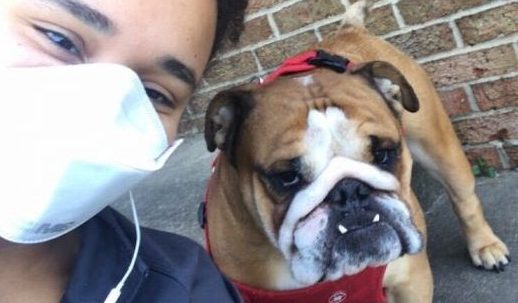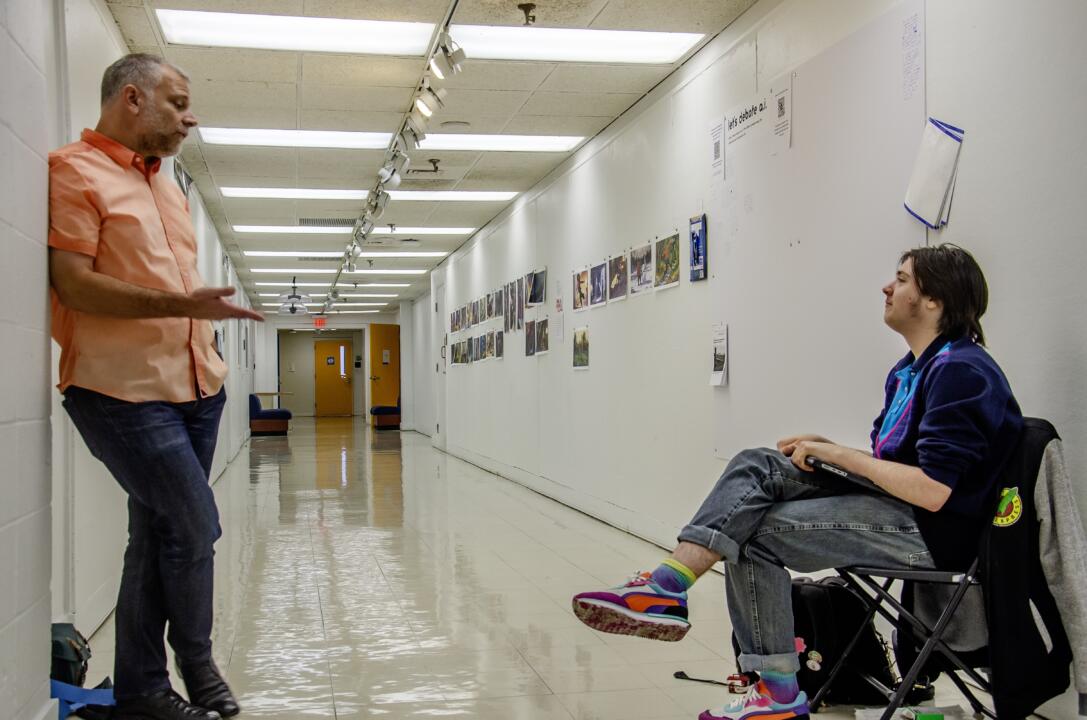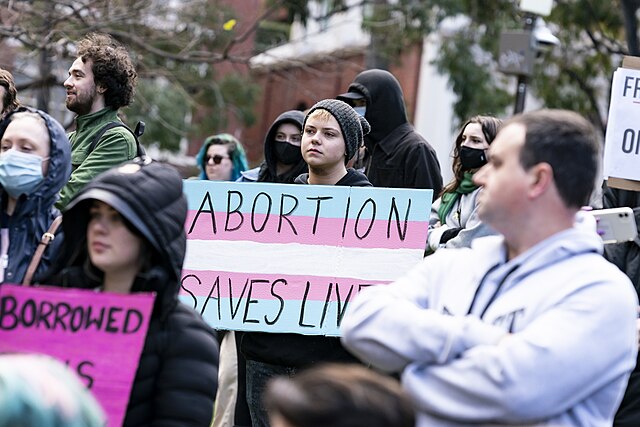The stress of the COVID-19 pandemic began months ago for Dominique.
Her father, who works at Walter Reed National Military Medical Center, told her in February about the growing number of COVID-19 patients they were seeing in the hospital long before the lockdowns and shelter-in-place orders came from governors. Dominique asked to be referred to by only her first name to protect her father’s identity.
“Nobody knew it was here yet, and my dad was already being exposed,” she said. Two weeks ago, the hospital had so many COVID patients and many of her father’s coworkers had contracted the virus, so they began to require many of the employees of the hospital to get tested.
Dominique’s father is a gastrointestinal technician who interacts with many of the hospital patients. He got tested and immediately isolated himself in the basement of their home. “My mom started saying, you have to stay in your room, you can’t come downstairs,” Dominique said. “I didn’t leave my room except to go to the bathroom, and I had no choice but to continue to do my homework.”
During the two week waiting period, Dominque’s father told her that he was experiencing symptoms, including a sore throat and feverish chills. Both Dominique and her father have underlying health conditions and are therefore more susceptible to developing more serious symptoms of COVID-19.
When the negative test results finally arrived, the symptoms, which were likely psychosomatic, disappeared and Dominique’s father returned to work, where he continues to be exposed to the virus.
For Dominique, the two weeks of waiting were agonizing. “I’ve been freaking out since way before we started social distancing. I’m just here doing my homework and thinking about the worst possible outcomes. I don’t have any peace but I’m having to do my work on top of [all of this]. How am I supposed to be in a place to be able to produce good work and to learn when I’m not okay?” she said.
And, she says, the lack of flexibility from some professors is indicative of a greater issue. “Pandemic or not, life happens. I’m having to push aside things I’m having to process just because my professor has a research paper I have to turn in,” she said.
Dominique believes that these problems are evergreen, issues that have been occurring across the board for much of her life. Dominique has ADHD, and after bringing up her learning disability to one of her professors, he told her she would “get good at skimming.” However, Dominique points out that her ADHD causes her to focus on each individual word in an article, making skimming virtually impossible.
During the regular semester, the absence policies from professors vary from class to class. Dominique remembers one professor introducing the syllabus this semester with a warning for students: “don’t get sick.” “What does that even mean? I’ve heard that in other classes, like ‘there’s no such thing as an unexcused absence.’ Ultimately it’s ableist,” she said. “I am emotionally and mentally drained.”
However, other professors, like English lecturer Raymond Terhorst, are actively trying to accommodate students. Terhorst’s positions set him apart from other faculty members, as he continues to commute once a week to his position as a Senior Instructional Designer at Johns Hopkins School of Medicine as well as teaching two graduate courses and one undergraduate classes at the University of Maryland, Baltimore County.
At Hopkins, Terhorst manages a team of educators and works with doctors and nurses as they develop new procedures and protocols. He has most recently worked with an infection control specialist on how to resuscitate a COVID-19 patient because medical professionals cannot give mouth-to-mouth or chest compressions.
Terhorst sees firsthand what healthcare workers are experiencing during the pandemic and, he says he’s interacted with faculty and colleagues who were pretending it was business as usual. “It’s not business as usual,” Terhorst said.
His experience at a hospital in the midst of the pandemic has given him a unique perspective, he says. “Students need to be accommodated all the time, not just during the COVID-19 [pandemic],” he said. “Realistically, there are emergencies going on all the time. We are all myopically focused on our own challenges, but we have to meet people where they are. You just never know what’s going on behind the scenes.”
His team leader at Hopkins had been struggling with breast cancer, and most of Terhorst’s coworkers, including himself, didn’t know until after she died. “No one really knew she had been fighting this for years,” he said. “In my interactions with her, I find myself pondering, ‘was I as patient as I needed to be?’”
Terhorst started his teaching career as an elementary school teacher in Prince George’s County, where he first began to realize the impact that students’ personal lives can have on their performance. Within the classroom, there were often students who fled from civil wars in Africa. After teaching at the elementary school, Terhorst began teaching English as a second language, where he continued to try to understand the student perspective. “Being a teacher of any sort [is] a collaborative relationship and really trying to understand the whole person to the best of one’s ability,” Terhorst said.
In his UMBC classroom, both when classes were meeting face-to-face and now, virtually, he has adjusted his teaching accordingly from flexible deadlines to office hours via email and phone calls and even the elimination of assignments on a case-by-case basis. Terhorst recognizes that many students, like Dominique, have extenuating circumstances.
And Dominique notes that these extenuating circumstances are often present even during the regular school year. During a pandemic, however, things look much bleaker. “It’s making me think a lot about how frustrating the whole university system is. Universities and professors want the show to go on, but you can’t ignore what’s going on. People still have to go to work. You have to treat it like it’s a disaster,” she said.




